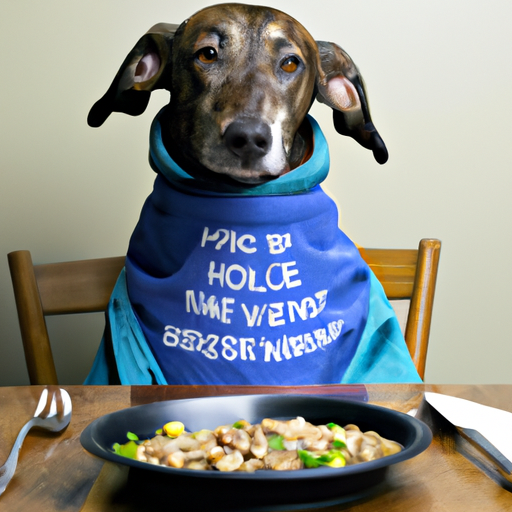Dear Caregiver, if you’re worried about your furry friend’s lack of appetite, you’ve come to the right place. In this article, we’ll explore several strategies and tips to help get your dog’s tail wagging at mealtime again.
H2: Understanding Your Dog’s Eating Habits
Firstly, it’s crucial to understand that each dog is unique and has its own eating habits. Some dogs may eat less due to their age, breed, or health condition, while others may simply be picky eaters. Here are a few factors to consider:
- Age: Older dogs tend to eat less as their metabolism slows down.
- Breed: Some breeds have smaller appetites than others.
- Health: Illness or medication can also affect a dog’s appetite.
H2: Provide a Balanced Diet
A balanced diet is key to maintaining a healthy appetite in dogs. Here’s what a balanced diet for a dog should look like:
| Food Group | Percentage of Diet |
|---|---|
| Protein | 25% |
| Carbohydrates | 30% |
| Fats | 20% |
| Fiber | 15% |
| Other nutrients (vitamins, minerals, etc.) | 10% |
H2: Make Mealtime Interesting
If your dog seems uninterested in its food, try to make mealtime more exciting. There are several ways to do this:
- Change the food presentation: You can use interactive feeding toys or puzzle feeders to stimulate your dog’s interest in food.
- Try different flavors or brands: Not all dogs like the same type of food. Experiment with different brands, flavors, and types of food (wet, dry, raw, etc.) to see what your dog prefers.
- Add tasty toppers to their food: A little bit of wet food, a sprinkle of shredded cheese, or a dash of low-sodium broth can make a big difference in your dog’s interest in their food.
H2: Consult a Veterinarian
If you’ve tried the strategies above and your dog’s appetite hasn’t improved, it might be time to consult a veterinarian. They can run tests to rule out any underlying health issues that might be affecting your dog’s appetite.
H2: Train Your Dog to Eat on a Schedule
Training your dog to eat on a schedule can help regulate their appetite. Start by feeding them at the same times each day. Consistency is key, and over time, your dog should start to feel hungry at these times.
Frequently Asked Questions (FAQs)
Q: How long should I wait before consulting a vet about my dog’s lack of appetite?
A: If your dog refuses to eat for more than 24 hours, it’s time to consult a vet.
Q: My dog is a picky eater. What can I do?
A: Try different types of food, flavors, and food presentation methods to see what your dog prefers.
Q: What if my dog only wants to eat human food?
A: While some human foods are safe for dogs, many are not. It’s best to stick to dog-friendly foods and treats.
Q: Can I give my dog appetite-stimulating medication?
A: Some medications can stimulate a dog’s appetite, but these should only be used under the guidance of a veterinarian.



